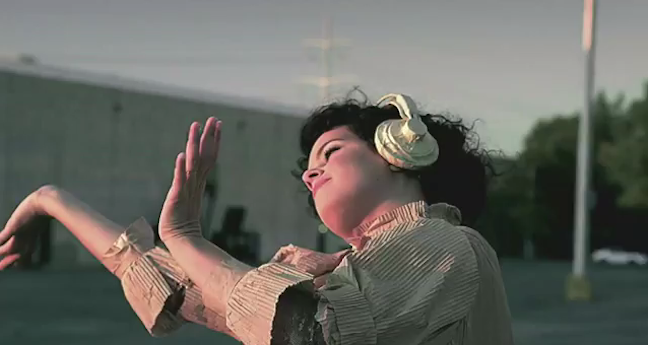How Arcade Fire’s music video borrows from and trumps games.

Andy Cush of Wired has an interview with Arcade Fire’s collaborator Vincent Morisset, the multimedia artist behind their music videos. Morisset’s recent work, the “Sprawl II (Mountains Beyond Mountains)” video blends the online space’s interactivity with the cinematics of film, all packed in to a five minute music video.
Most recently, he directed the beautifully unsettling video for “The Sprawl II (Mountains Beyond Mountains),” Arcade Fire’s latest single. The video presents characters whose behaviors mimic that of the viewer. Dance quickly to the music, and the characters will do the same; slow down and they’ll follow suit. If you stop dancing altogether, the characters stop progressing, their movements stuck in an endless loop.
Through simple interactions like scrolling a mouse across a computer screen, or complicated ones like dancing in front of a webcam, Morisset’s films ask the audience to participate in an unfolding narrative. His approach is tailor-made for web 2.0. Just as Facebook and Twitter are only worthwhile when users get involved, Morisset’s work truly comes alive only with audience input.
This simple introduction of audience-dependent interaction along with the haunting visuals make for a fascinating effect; as the director you are given the opportunity to break down and examine each frame as you see fit, but as the viewer you feel compelled to return these people to fluid motion. It’s an extremely strange way of composing and experiencing a narrative. Making the video interactive raises its stakes, it’s up to you to play with these puppet-people, to experience as much or as little of the story as you want and to define the world that they experience.
Since I want to trigger emotions through my projects, I work hard so that we kind of forget that we’re in front of a computer. We forget about the technology and it just feels like a kind of weird, magical thing, reacting to what you do.
They needed me and I wanted to help them, to bring them to life. It’s more than I’ve felt about a lot of games.
– Adnan Agha
[via Wired]



